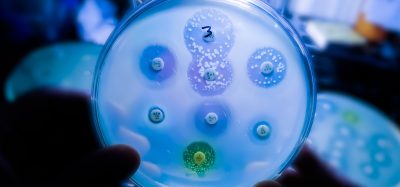New data shows benefits of automated blood exchange for sickle cell disease
Posted: 24 December 2024 | Drug Target Review | No comments yet
New studies highlight the potential of automated blood exchange to improve outcomes for sickle cell disease patients.


Terumo Blood and Cell Technologies (Terumo BCT) has presented new data at the 66th Annual Meeting of the American Society of Hematology (ASH), highlighting the clinical and economic benefits of using automated red blood cell exchange (aRBCX) as a disease-modifying treatment for sickle cell disease (SCD). The research, presented in three separate abstracts, adds to the growing body of evidence supporting aRBCX as an effective therapy for improving both quality of life and clinical outcomes in SCD patients.
The abstracts include:
- Use of Chronic Blood Transfusion Therapy and Pharmaceutical Disease-Modifying Treatments in Sickle Cell Disease: A Retrospective Cohort Analysis (2014-2021)
- Clinical and Economic Impact of Long-Term Disease Modifying Transfusions in Adults as a Prophylactic Intervention for Sickle Cell Disease Crises
- Clinical and Economic Impact of Long-Term Disease Modifying Transfusions in Paediatrics as a Prophylactic Intervention for Sickle Cell Disease Crises
Sickle cell disease is a chronic condition that requires ongoing treatment to manage complications, and long-term transfusion therapy is an established part of care. However, in countries like the US and the UK, many patients still do not receive disease-modifying treatments, such as aRBCX, despite their availability. Some patients also face challenges with medication adherence, and with recent market withdrawals of certain drugs due to safety concerns, the need for alternative therapies has become even more pressing.
The research presented at ASH highlights the potential of aRBCX to fill this gap. A study performed with the University of Pittsburgh utilised US insurance claims data, revealing that the majority of SCD patients in the country are not receiving adequate disease-modifying treatments, including aRBCX. This highlights how FDA-cleared therapies like aRBCX are underutilised compared to approved pharmacotherapies, despite their potential to improve patient outcomes.
Two additional studies conducted with three UK-based hospitals focused on aRBCX’s cost-effectiveness. These studies utilised patient-level simulation modelling to compare the clinical and economic benefits of aRBCX, delivered via Terumo BCT’s Spectra Optia™ Apheresis System, with manual red blood cell exchange (RBCX) procedures. The results demonstrated that aRBCX offers both better clinical outcomes and cost savings, making it a valuable option for patients and healthcare systems alike.
“Automated red blood cell exchange is a well-established therapeutic approach that is both FDA-cleared and recommended by NICE (the National Institute for Health and Care Excellence in the UK). However, it is still underutilised, given the benefits that Sickle Cell Warriors and their physicians have described to us,” said Koenraad Dierick at Terumo BCT. “Along with recent publications demonstrating quality-of-life improvements for patients receiving these procedures regularly and new expert guidelines for the use of therapeutic exchanges for SCD patients during pregnancy, the studies presented at ASH are helping confirm the potential benefit for broader usage of aRBCX as a regular disease-modifying treatment. The SCD community has suffered while their needs have gone unmet for too long, and Terumo BCT is a committed partner for improving the lives of everyone who can benefit from blood therapies.”
This new data strongly supports the broader use of aRBCX in the routine care of SCD patients, offering hope for a more personalised and effective treatment approach. As clinical evidence continues to accumulate, it is clear that this therapy could significantly change the treatment landscape for sickle cell disease, leading to better outcomes for patients around the world.
Related topics
Clinical Trials, Drug Discovery, Drug Discovery Processes, Translational Science
Related conditions
Sickle cell disease (SCD)
Related organisations
American Society of Hematology (ASH), Terumo Blood and Cell Technologies, The National Institute for Health and Care Excellence (NICE), University of Pittsburgh
Related people
Koenraad Dierick








